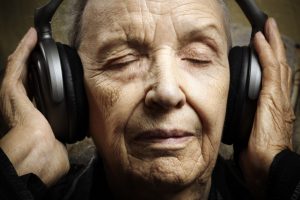 Music is an important part of our lives. We often associate certain sounds and music with significant events or personal milestones. A familiar piece of music can evoke vivid recollections and strong emotions. Music can make us feel euphoric, thoughtful or even melancholy.
Music is an important part of our lives. We often associate certain sounds and music with significant events or personal milestones. A familiar piece of music can evoke vivid recollections and strong emotions. Music can make us feel euphoric, thoughtful or even melancholy.
What is Alzheimer’s or dementia music therapy?
Music therapy for Alzheimer’s or dementia patients uses music and the subsequent memories and feeling the music evokes to help those patient’s cognitive functions and mental health.
How does music therapy help with dementia?
We are, in fact, highly musical beings. The auditory system in our brains is the first to fully function. Music and sounds are one of the first things we respond to even before cognitive processing takes place.
This is the reason, researchers believe, that music has been shown to be so effective in reaching dementia patients. It seems music can often stimulate parts of the patients’ brains that others forms of communication cannot and while general memory may decline, memory for music remains deeply held.
This power of music to spark a patients’ memory helps to engage their focus and attention and can result in unlocking emotions and memories, influencing mood, alleviating stress and enhancing cognitive functioning.
Responding to new or familiar music does not require a great deal of mental or cognitive processing which makes it easy to engage patients with sounds, rhythms, singing and playing even late into dementia progression.
Family members can help caregivers choose music that is personally meaningful to an individual with dementia. Music from the individual’s youth may evoke the strongest response.
Of course, different musical selections can elicit different responses. For example, a more upbeat selection may be appropriate for active times such as mealtimes, while slower ballad-like pieces are good for relaxation and bedtimes.
Music can have many benefits for even the most advanced dementia patients. Music helps unlock old emotions and memories and new associations can be formed by pairing music with daily activities, improving overall cognitive ability. Responding to music, especially through singing, dancing or playing an instrument is engaging and stimulative, activating more of the patients’ brains than usual. Music can help improve mood, relieve stress and stimulate motor and cognitive functioning. And finally, music serves as an effective channel for helping dementia patients connect with their memories, their past selves, their loved ones and with the wider world around them.
